Contents
Content Type: 1
Title: Arkansas Foreign Language Teachers Association
Body:
AFLTA was founded to promote and coordinate the general interest of the teaching of foreign languages and cultures, to provide professional development, and to serve as an information source for foreign language teachers in Arkansas.
Visit the AFLTA website to find information about upcoming events, professional development opportunities and district event information: http://www.aflta.org/
Source: AFLTA
Inputdate: 2017-02-17 21:01:58
Lastmodifieddate: 2017-02-20 03:47:30
Expdate:
Publishdate: 2017-02-20 02:15:02
Displaydate: 2017-02-20 00:00:00
Active: 1
Emailed: 1
Isarchived: 0
Content Type: 1
Title: 18 Mix and Match Activities to Talk about the Weekend
Body:
Here are some different activities in which students can talk about what they plan to do or what they did over the weekend or on vacation: http://www.languagemakerspace.com/2017/02/01/18-mix-and-match-activities-to-talk-about-the-weekend/
Source: Language Makerspace
Inputdate: 2017-02-17 21:02:40
Lastmodifieddate: 2017-02-20 03:47:30
Expdate:
Publishdate: 2017-02-20 02:15:02
Displaydate: 2017-02-20 00:00:00
Active: 1
Emailed: 1
Isarchived: 0
Content Type: 1
Title: Five Zero-Prep Activities
Body:
Here are five quick zero-prep activities that you can do in your language classroom when you have a little bit of extra, unplanned time: http://frenchteachernet.blogspot.com/2017/02/5-great-zero-preparation-lesson-ideas.html
Source: Language Teacher Toolkit
Inputdate: 2017-02-17 21:03:31
Lastmodifieddate: 2017-02-20 03:47:30
Expdate:
Publishdate: 2017-02-20 02:15:02
Displaydate: 2017-02-20 00:00:00
Active: 1
Emailed: 1
Isarchived: 0
Content Type: 5
Title: 2017 Global Pathways Summit
Body:
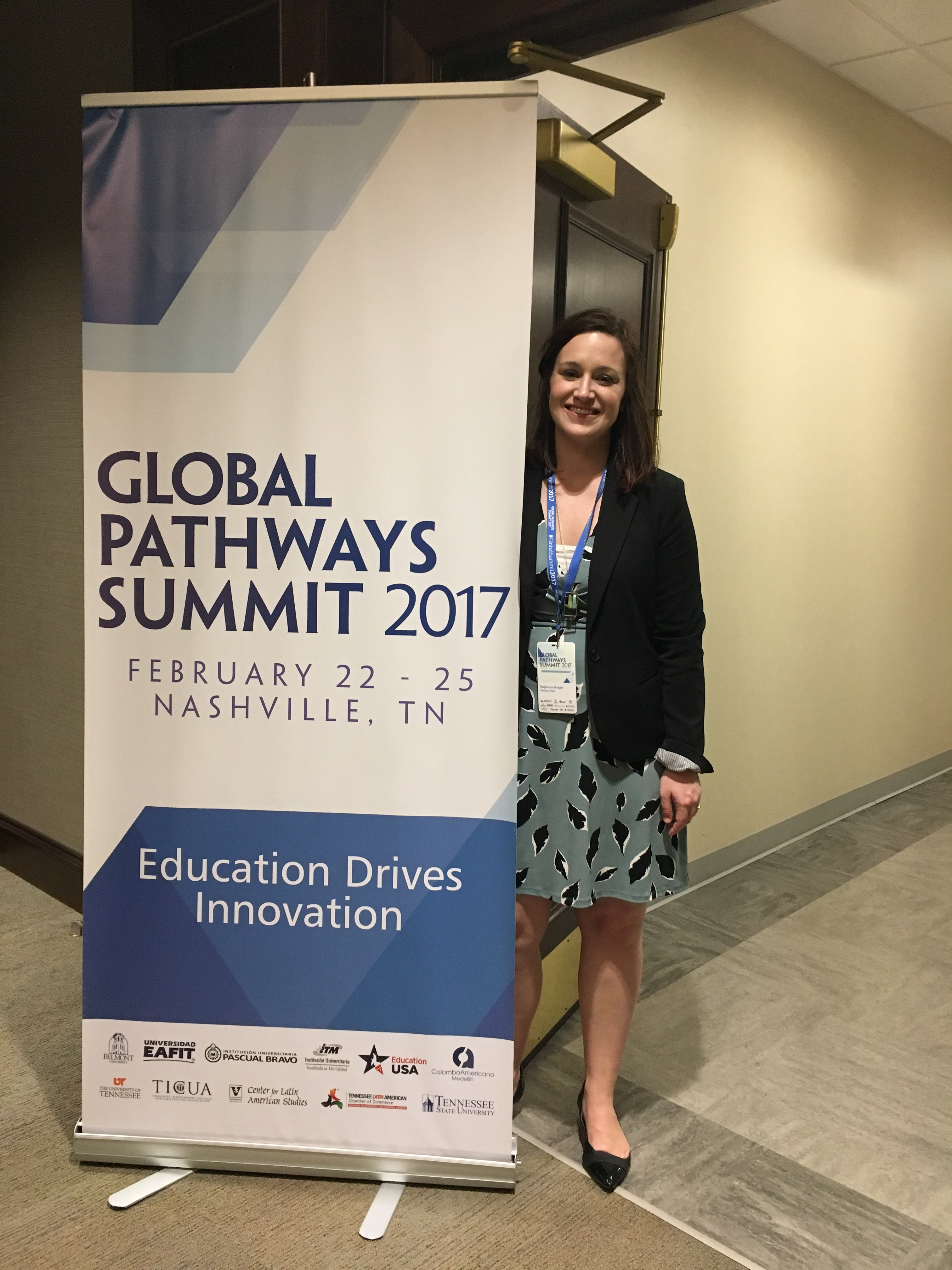 “Education drives change.” This tagline appropriately addresses the theme of the Global Pathways Summit that was held in Nashville, Tennessee, February 22-25. This summit, developed by the Colombo Americano (a cultural institution specializing in the teaching of English and and the culture of English-speaking countries to socioeconomically disadvantaged groups in Colombia), Tennessee State University, and Vanderbilt University, brought together a number of HBCUS, other universities and schools in the United States, and universities in Colombia to to discuss and analyze the role of education in sparking innovation in the community. Inspired by the staggering development in Medellín, a city in Colombia that over a span of two decades went from being one of the most violent cities in the world to earning the title of “Innovative City of the Year” in 2013, this summit allowed participants to glean understanding and ideas about unlocking the transformative potential of education in the community.
“Education drives change.” This tagline appropriately addresses the theme of the Global Pathways Summit that was held in Nashville, Tennessee, February 22-25. This summit, developed by the Colombo Americano (a cultural institution specializing in the teaching of English and and the culture of English-speaking countries to socioeconomically disadvantaged groups in Colombia), Tennessee State University, and Vanderbilt University, brought together a number of HBCUS, other universities and schools in the United States, and universities in Colombia to to discuss and analyze the role of education in sparking innovation in the community. Inspired by the staggering development in Medellín, a city in Colombia that over a span of two decades went from being one of the most violent cities in the world to earning the title of “Innovative City of the Year” in 2013, this summit allowed participants to glean understanding and ideas about unlocking the transformative potential of education in the community.
The Center for Applied Second Language Studies at the University of Oregon has long believed in this power of education and participated in the summit alongside one of our partner institutions, Portland Public Schools. Specifically, CASLS and PPS representatives were on hand to offer the Bridging Project, a project that has resulted in the development of an online course for advanced secondary learners of Chinese, Spanish, and Russian, as an example of one way that partnerships in the community with Higher Education Institutions (HEIs) can drive innovation and change. Though this specific project was highlighted as an example of this push, the growth of the CASLS-PPS partnership and the lessons that accompanied that growth since its original inception during the articulation of a K-16 pipeline for Chinese Flagship served as major focus of the talk.
Source: CASLS Spotlight
Inputdate: 2017-02-24 09:32:23
Lastmodifieddate: 2017-02-27 03:50:16
Expdate:
Publishdate: 2017-02-27 02:15:02
Displaydate: 2017-02-27 00:00:00
Active: 1
Emailed: 1
Isarchived: 0
Content Type: 5
Title: Getting to Know CASLS Staff: Mandy Gettler
Body:
5-Question Profile for Mandy Gettler, Associate Director for CASLS.
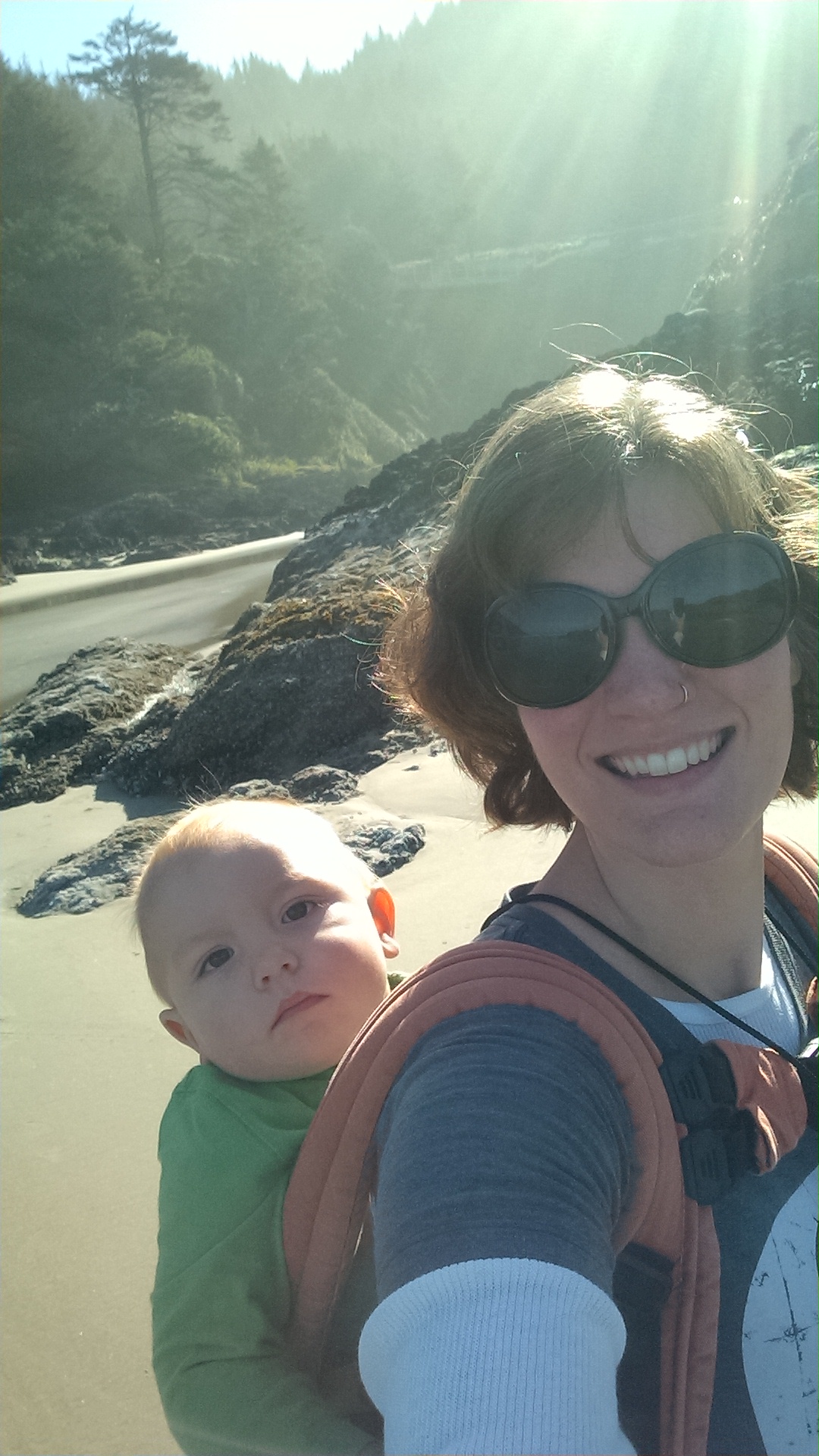 1. What is your role at CASLS? What types of projects do you usually work on?
1. What is your role at CASLS? What types of projects do you usually work on?
I am the associate director at CASLS. I manage communications, grants, financial resources, and personnel.
2. What are your areas of interest/expertise?
I am fortunate enough to work with inspirational, creative, and inventive people. My goal is to realize their ideas into something that can come to fruition – and then find someone to fund the work.
My expertise involves navigating layers of bureaucracy, managing financial resources, and following things through. I’m getting better at supporting my colleagues in ways that allow them to do their best work each and every day. I’m always looking for opportunities to insert mindfulness or folklore in my work life.
3. What do you like best about working at the University of Oregon and living in Eugene?
I adore my CASLS colleagues! They are the best and brightest in the field, and I am honored to work alongside them.
As a non-native Eugene resident, I appreciate the natural scenery and all that it offers: hiking, camping, swimming, mushroom hunting, and connecting with the sublime just outside my doorstep.
4. If you could have any super power, what would it be and why?
The ability to read faster. Is that a super power? If not, it should be. My list of books to read is too long! My life will never be long enough to read it all.
5. What is/are your favorite quote(s)?
“It would be possible to describe everything scientifically, but it would make no sense; it would be without meaning, as if you described a Beethoven symphony as a variation of wave pressure.” – Albert Einstein
“When you come to think of it, everything in the world is beautiful really, everything but our own thoughts and actions, when we lose sight of the higher aims of our life, and of our dignity as human beings.” - Anton Chekhov, The Lady with the Dog
“What stops me from taking myself seriously, even though I’m essentially a serious person, is that I find myself extremely ridiculous – not in the sense of the small scale ridiculousness of slapstick comedy, but rather in the sense of a ridiculousness that seems intrinsic to human life and that manifests itself in the simplest actions and most ordinary gestures.” - Gustave Flaubert to Louise Colet, August 1846, quoted in The Art of Travel by Alain de Botton
Source: CASLS Spotlight
Inputdate: 2017-02-24 09:38:52
Lastmodifieddate: 2017-03-13 03:51:44
Expdate:
Publishdate: 2017-03-13 02:15:03
Displaydate: 2017-03-13 00:00:00
Active: 1
Emailed: 1
Isarchived: 0
Content Type: 5
Title: Getting to Know CASLS Staff: Linda Forrest
Body:
5-Question Profile of Linda Forrest, Research Director for CASLS
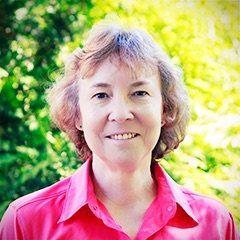 1. What is your role at CASLS? What types of projects do you usually work on?
1. What is your role at CASLS? What types of projects do you usually work on?
I'm the Research Director. As such, I'm involved in any projects that involve the collection and analysis of data, which the majority of our projects do at some point.
2. What are your areas of interest/expertise?
While I was in grad school studying Linguistics, I became interested in the psychological processes involved in language production and comprehension. I took a lot of classes in the Psychology department, learning how to gather and analyze data from human subjects. Currently, I'm intrigued by the problem of using streams of learner data to figure how when and how learning occurs.
3. What do you like best about working at the University of Oregon and living in Eugene?
It's a Goldilocks town--not too big, not too small. And most years, I actually like the rain.
4. If you could have any super power, what would it be and why?
The ability to time travel. I'd like to be able to into the past and find out what really happened.
5. What is/are your favorite quote(s)?
"God grant me the serenity to accept the things I cannot change, the courage to change the things I can, and the wisdom to know the difference." - Reinhold Niebuhr
Source: CASLS Spotlight
Inputdate: 2017-02-24 09:47:52
Lastmodifieddate: 2017-08-07 03:55:08
Expdate:
Publishdate: 2017-08-07 02:15:01
Displaydate: 2017-08-07 00:00:00
Active: 1
Emailed: 1
Isarchived: 0
Content Type: 5
Title: Getting to Know CASLS Staff: Ben Pearson
Body:
5-Question Profile of Ben Pearson, Digital Technologies Associate for CASLS.
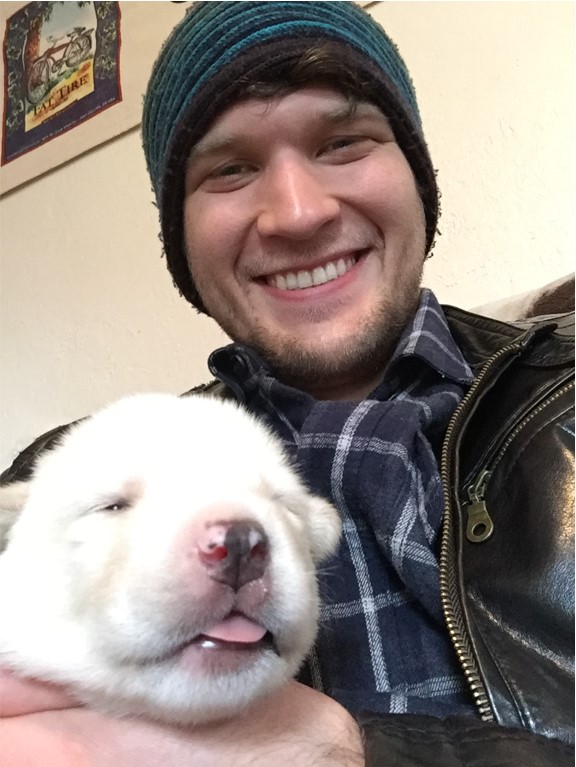 1. What is your role at CASLS? What types of projects do you usually work on?
1. What is your role at CASLS? What types of projects do you usually work on?
I am the Digital Technologies Associate at CASLS, which means that I typically work on projects associated with new and developing technologies and implementing them for the language learning classroom. From teaching ESL classes to researching cross-curricular connections with language acquisition to developing place-based language learning games, I have no shortage of projects to keep me occupied.
2. What are your areas of interest/expertise?
My areas of interest in the field of language learning include game-based learning, game-enhanced learning, gestures, body language, non-verbal behavior, and digital literacy. My expertise is in teaching English as a Second/Foreign language, designing course curricula and activities, using various games to teach negotiation skills, and integrating digital technologies in the classroom.
3. What do you like best about working at the University of Oregon and living in Eugene?
One of the best things about working for the University of Oregon is having the opportunity to work with several like-minded individuals on exciting projects and help improve my knowledge and experience in my particular field of study. In addition, living in Eugene is great because of the friendly community and the many opportunities to stay active outdoors. I love camping, running, and rock climbing, so Eugene is the perfect place for me!
4. If you could have any super power, what would it be and why?
If I could have any superpower, it would be super speed, since I could get around much easier and take care of everyday tasks much faster. Plus, I've always liked to run for fun!
5. What is/are your favorite quote(s)?
"We cannot change the cards we are dealt, just how we play the hand." – Randy Pausch, computer scientist and writer
"All the adversity I've had in my life, all my troubles and obstacles, have strengthened me...You may not realize it when it happens, but a kick in the teeth may be the best thing in the world for you." – Walt Disney
Source: CASLS Spotlight
Inputdate: 2017-02-24 11:36:20
Lastmodifieddate: 2017-05-15 04:05:43
Expdate:
Publishdate: 2017-05-15 02:15:02
Displaydate: 2017-05-15 00:00:00
Active: 1
Emailed: 1
Isarchived: 0
Content Type: 5
Title: Getting to Know CASLS Staff: Renée Marshall
Body:
5-Question Profile of Renée Marshall, International Programs Specialist for CASLS.
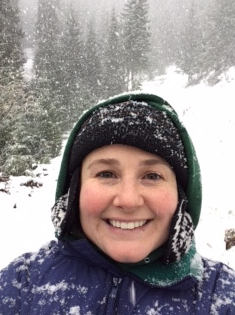 1. What is your role at CASLS? What types of projects do you usually work on?
1. What is your role at CASLS? What types of projects do you usually work on?
My official title is International Programs Specialist. I help coordinate our international programs and I provide help and support on various curriculum and outreach projects.
2. What are your areas of interest/expertise?
My main interests are in second language and ESL teaching pedagogy, pragmatics, teacher education, and exploring how language, identity, power and discrimination intersect and relate to each other. I earned my B.A. in French and Spanish as well as a M.Ed and teaching credential from UC Santa Barbara. My M.Ed Inquiry was entitled: What are tests assessing? From the UO I earned my M.A. in Romance Languages. My M.A. essay was entitled: “Thin Edge of Barbed Wire”: National Identity and ‘Cultural Flexibility’ in Nina Bouraoui’s Garçon Manqué and Gloria Anzaldúa’s Borderlands/La Frontera.
3. What do you like best about working at the University of Oregon and living in Eugene?
I love that Eugene is a small town but has a lot of big town attractions. For this size of city, Eugene has a lot going on. I like that I can get the small town feel and still go out in nature, breathe fresh air, go hiking, but at the same time have access to shopping, concerts, lectures, university courses, college sports, and of course great local beer. I love that I can continue learning languages through the University with the Yamada Language Center's self study program.
4. If you could have any super power, what would it be and why?
I would like to be able to apparate, like in Harry Potter! That way I could travel all over the globe in a jiffy. Lunch in Paris? Dinner in Shanghai? Let's go!
5. What is/are your favorite quote(s)?
"Be yourself; everyone else is already taken" ~ Oscar Wilde
"The creation of a thousand forests is in one acorn." - Ralph Waldo Emerson
"Your task is not to seek love but merely to seek and find all the barriers within yourself that you have built against it." - Rumi
Source: CASLS Spotlight
Inputdate: 2017-02-24 12:09:11
Lastmodifieddate: 2017-07-03 03:49:57
Expdate:
Publishdate: 2017-07-03 02:15:02
Displaydate: 2017-07-03 00:00:00
Active: 1
Emailed: 1
Isarchived: 0
Content Type: 3
Title: Five Things Every Teacher Should Know about ICC Can-Dos
Body:
Jacqueline Van Houten was the 2015 president of the American Council on the Teaching of Foreign Languages and 2010-12 president of the National Network for Early Language Learners. She is World Language Specialist for Jefferson County Public Schools in Kentucky and served as the World Language and International Education consultant at the Kentucky Department of Education. Prior to her state work, Jacque taught French at the elementary, high school, and university levels.
This summer the NCSSFL-ACTFL Can-Do statements for Intercultural Communicative Competence will be released for curricular planning in the 2017-2018 academic year. As educators unpack yet another tool it may lower the stress to focus on five simple take always.
- ICC Can-Do tool serves as a framework to integrate culture and target language use.
This tool, like the NCSSFL-ACTFL language Can-Dos, focuses on communication, but with the added benefit of being presented within a cultural context. The Can-Dos show language progression across the Proficiency Scale, as well as what learners can do through language to express their cultural knowledge and intercultural mindset. All language can be taught through a cultural lens. Using this tool, educators will discover ways to naturally permeate language teaching and learning with culture and, at the same time, shape learners' intercultural perspectives.
- The ICC Can-Do tool is not a curriculum.
The broad global benchmarks and the more specific indicators of the tool provide clear descriptions of performance expectations at each proficiency level. The tasks, however, are merely samples of how learners might demonstrate their interculturality within the confines of the benchmarks and indicators. The tasks do not constitute a prescribed curriculum, rather they suggest what can be done. Users are encouraged to create their own Can-Dos within the parameters of the benchmarks and indicators.
- The ICC tool is a starting point for performance-based rubrics & assessment
Educators will find that the tasks often sound like performance assessments and can certainly be used as such if they fit into the context of the lesson. The benchmarks and indicators naturally lend themselves to serve as criteria for rubrics, and support performance-based grading.
- ICC Can-Dos are as much for the learner as they are for the teacher.
The more educators share this tool with their learners, the better learners will understand the process of developing proficiency and be able to set and self-assess appropriate learning goals.
To start use the statements as lesson goals, sharing them with learners, then asking them to co-create Can-Dos, and finally set their own goals
- Using the tool is one step in the ICC process.
Developing interculturality is more than demonstrating targeted Can-Do statements. It involves opportunities to interact with native speakers in authentic contexts and reflect on the mediation of meaning, while striving to act without bias or judgement. It also involves a change in mindset, which requires reflection. Reflection scenarios are provided to help educators develop a reflective process while still staying in the target language during instruction.
Source: CASLS Topic of the Week
Inputdate: 2017-02-24 14:30:50
Lastmodifieddate: 2017-03-13 03:51:44
Expdate:
Publishdate: 2017-03-13 02:15:03
Displaydate: 2017-03-13 00:00:00
Active: 1
Emailed: 1
Isarchived: 0
Content Type: 1
Title: Book: Linguanomics
Body:
From http://bloomsbury.com/us/linguanomics-9781474238298/
Linguanomics: What is the Market Potential of Multilingualism?
By Gabrielle Hogan-Brun
Published by Bloomsbury Publishing
Globalization, the Internet and an era of mass travel have combined to produce a world with a language mix on a huge scale. Linguanomics explains this multilingualism in a material, economic and cultural sense.
What is the effect of this multilingualism on society, organizations and individuals? What are the economic benefits and drawbacks? Should we invest in language skills? Should there be interventionist policies, and if so, at what level? Should there be a global lingua mundi? The debate surrounding multilingualism is often clouded by emotion and misconception. With an analysis devoid of rhetoric, Gabrielle Hogan-Brun takes an objective look at this charged area.
The result is Linguanomics: a major step towards a clearer understanding of the market potential of multilingualism, its benefits, costs and points of contention. Asking significant questions of profound concern to the future of global collaboration, Linguanomics is an essential guide to students, teachers, policy makers and politicians and anyone who cares about the role of language in the modern world.
Visit the publisher’s website at http://bloomsbury.com/us/linguanomics-9781474238298/
Read a recent article by the author at https://theconversation.com/why-multilingualism-is-good-for-economic-growth-71851
Source: Bloomsbury Publishing
Inputdate: 2017-02-25 14:44:34
Lastmodifieddate: 2017-02-27 03:50:16
Expdate:
Publishdate: 2017-02-27 02:15:02
Displaydate: 2017-02-27 00:00:00
Active: 1
Emailed: 1
Isarchived: 0
